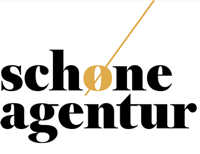Debutant Prize for Kim de l’Horizon and BLOODBOOK
Kim de l’Horizon and his debut BLOODBOOK have been awarded with the Jürgen Ponto Prize 2022 for Young Authors. The Jürgen Ponto Foundation awards the Literature Prize to young authors who are working on their first extensive book manuscript and show particular literary talent. Previous winners include Martin Mosebach, Einar Schleef, Arnold Stadler, Zoë Jenny, Andreas Maier, Zsuzsa Bánk, Reinhard Kaiser-Mühlecker, Sasha Marianna Salzmann and most recently Stefan Hornbach.
„A debut hard to be exceeded (…) A book of superpowers, of superheroines. It comes with a saving grace. (…) This debut could move people like the great confessional texts by Édouard Louis, Annie Ernaux, Daniel Schreiber or Hanya Yanagihara did recently.“
The Jury of the Jürgen Ponto Foundation Literature Prize
“This is writing as an existential obsession. Blutbuch employs tremendous power to tell a story about growing up in a small provincial family, adult life in Zurich, vain attempts at liberation and successful emancipation, about the desire for belonging, the search for identity, and denying one’s whole identity, about passion and shame— in short, the multifaceted legacy that the narrator carries within themselves.” Ruth Schweikert
- Nominated for the German Book Award 2022
- Winner of the Jürgen Ponto Literature Prize to young authors 2022
The book’s unnamed protagonist, who feels neither male nor female, is prompted by their grandmother’s slide into dementia to investigate their family history. The more their grandmother forgets, the more the narrator tries to remember: what was it in their childhood that prompted them to feel so alienated from their body? Does it have something to do with the family’s hushed-up history of incest? Why is their grandmother struggling to differentiate between herself and her sister who died young? And what happened to their youngest great aunt who disappeared when she was young?
A Book to Shake Perceptions and Certitudes – a Book that Will Change You
Tracking down answers to these questions proves difficult because the family has a habit of keeping quiet about such matters. At the heart of it all is the question of self-determination: how to exist when your own body is never a given, but is instead constantly having to be negotiated?
Singular in its style and form, Bloodbook deals with our intangible heritage, the things we carry without being asked: stories, genders, identities, trauma, languages, class affiliations. Kim de l’Horizon searches for other kinds of knowledge and traditions, other stories and ways of becoming: feminist, witchy, bought with blood, and those that leave a hole in their wake. De l’Horizon leaves the linear, monotonous form of family stories behind and opts for a fluid, streaming form of writing which softens instead of pinning down.
